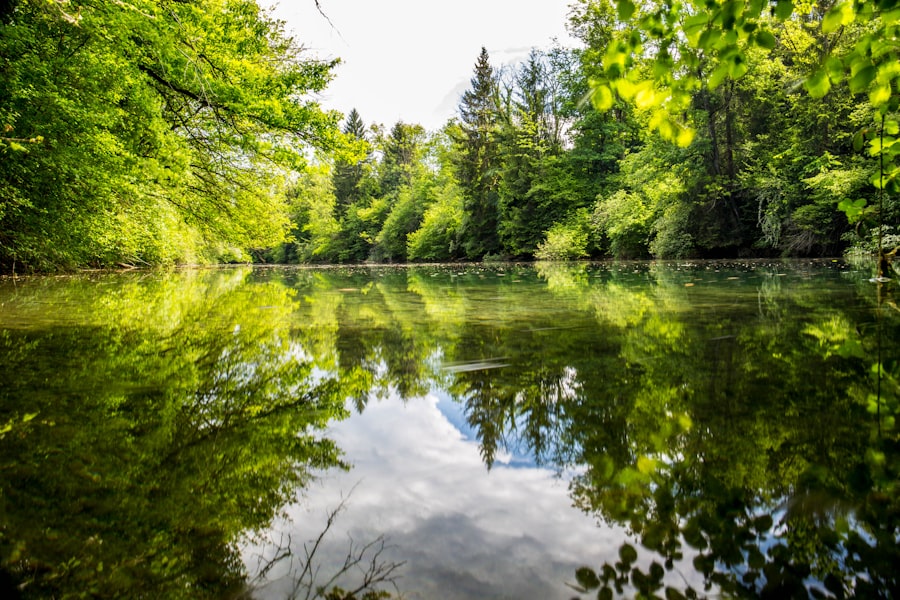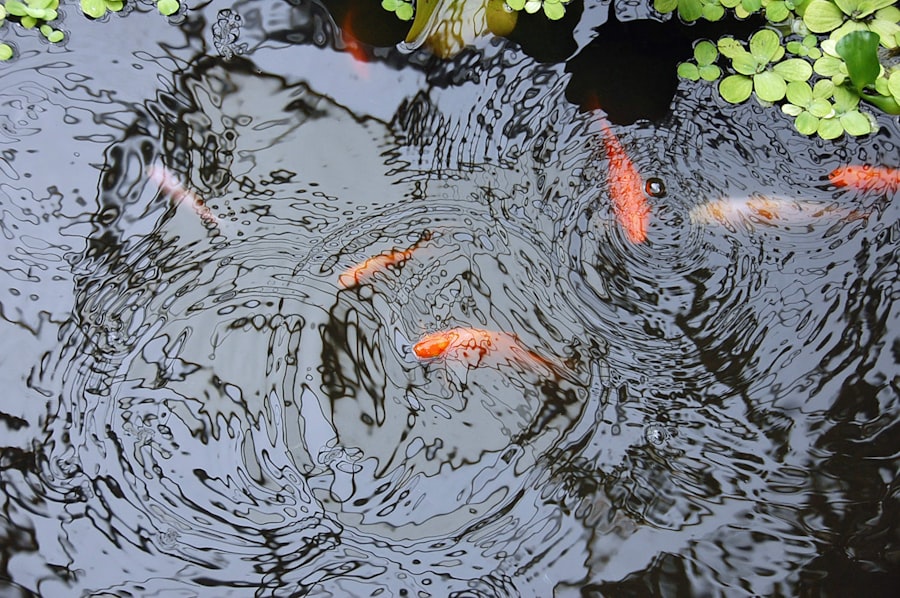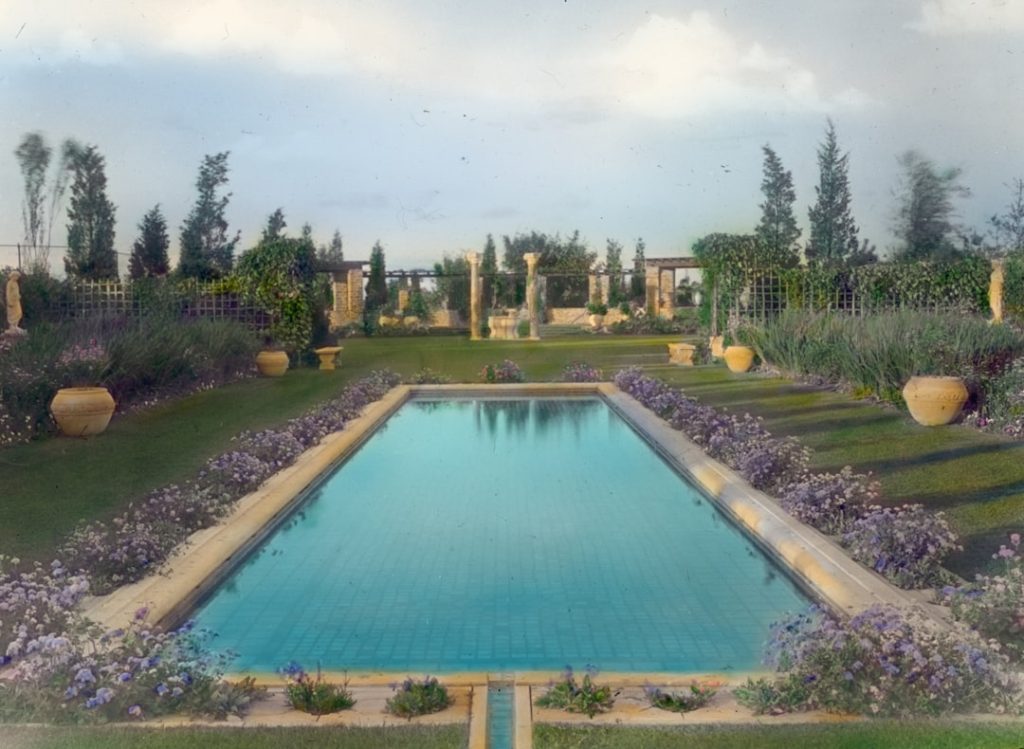Clean water is essential for chicken health and well-being. Chickens require access to clean water for hydration, body temperature regulation, and digestion. Clean water is also crucial for disease and infection prevention in chickens.
Contaminated water can contain harmful bacteria, parasites, and pathogens that may cause illness in chickens. It can also promote algae growth, further contaminating the water and posing health risks. Providing clean water is important for maintaining egg production and overall productivity in chickens.
Dehydration can lead to decreased egg production and poor egg quality. Insufficient access to clean water can cause stress and reduced immune function, making chickens more susceptible to diseases. Therefore, ensuring constant access to clean, fresh water is vital for chicken health, well-being, and productivity.
Table of Contents
- 1 Choosing the Right Pond Location
- 2 Implementing a Filtration System
- 3 Regular Maintenance and Cleaning
- 4 Monitoring Water Quality
- 5 Preventing Algae and Bacterial Growth
- 6 Providing Additional Water Sources
- 7 FAQs
- 7.1 What are the benefits of keeping a clean water pond for chickens?
- 7.2 How often should the water pond be cleaned?
- 7.3 What are some methods for keeping the water pond clean?
- 7.4 What should be done if the water pond becomes contaminated?
- 7.5 Are there any natural ways to keep the water pond clean?
- 7.6 Why is it important to keep the water pond clean for chickens?
Key Takeaways
- Clean water is essential for the health and well-being of chickens, as it impacts their hydration, digestion, and overall immune system.
- When choosing a pond location for chicken water supply, consider factors such as accessibility, proximity to the coop, and potential contamination sources.
- Implementing a filtration system, such as a mechanical filter or biological filter, can help remove impurities and maintain water quality for chickens.
- Regular maintenance and cleaning of the water source is crucial to prevent the buildup of harmful bacteria and algae that can negatively impact chicken health.
- Monitoring water quality through regular testing and observation can help identify any issues early on and take corrective actions to ensure clean water for chickens.
- Preventing algae and bacterial growth can be achieved through measures such as proper aeration, shading the water source, and using natural additives like barley straw.
- Providing additional water sources, such as waterers and automatic drinkers, can ensure that chickens have access to clean water at all times, especially during hot weather or when the pond water may be compromised.
Choosing the Right Pond Location
Avoiding Contamination Sources
Ideally, the pond should be located away from potential sources of contamination such as septic tanks, livestock waste, and chemical runoff from fields.
Ensuring Good Drainage and Sunlight
It should also be situated in an area with good drainage to prevent stagnant water and minimize the risk of bacterial growth. In addition, the pond should be located in an area that receives adequate sunlight. Sunlight helps to inhibit the growth of algae and bacteria in the water, keeping it clean and safe for the chickens to drink.
Accessibility and Design Considerations
Furthermore, the pond should be easily accessible for the chickens, with a gentle slope leading down to the water’s edge to allow for easy drinking and bathing. By carefully selecting the location of the pond, poultry farmers can ensure that their chickens have access to clean, safe water that promotes their health and well-being.
Implementing a Filtration System

In order to maintain clean water for chickens, it is important to implement a filtration system in the pond. A filtration system helps to remove debris, sediment, and other contaminants from the water, ensuring that it remains clean and safe for the chickens to drink. There are several types of filtration systems that can be used, including mechanical filters, biological filters, and chemical filters.
Mechanical filters work by physically removing debris and sediment from the water through a series of screens or filters. Biological filters use beneficial bacteria to break down organic matter and remove harmful substances from the water. Chemical filters use substances such as activated carbon or zeolite to absorb impurities and improve water quality.
By implementing a filtration system in the pond, poultry farmers can ensure that the water remains clean and safe for their chickens, reducing the risk of disease and promoting overall health and well-being.
Regular Maintenance and Cleaning
In addition to implementing a filtration system, regular maintenance and cleaning of the pond are essential for ensuring clean water for chickens. This includes removing any debris or sediment that accumulates in the pond, as well as regularly checking and cleaning the filters in the filtration system. It is also important to monitor the water level in the pond and replenish it as needed to ensure that the chickens always have access to fresh, clean water.
Furthermore, regular cleaning of the pond can help to prevent the growth of algae and bacteria, which can contaminate the water and pose health risks to the chickens. This can be done by using natural methods such as introducing beneficial aquatic plants or using environmentally safe algaecides. By maintaining and cleaning the pond on a regular basis, poultry farmers can ensure that their chickens have access to clean, safe water that promotes their health and well-being.
Monitoring Water Quality
Monitoring the quality of the water in the pond is essential for ensuring that it remains clean and safe for chickens. This can be done by regularly testing the water for pH levels, ammonia, nitrites, nitrates, and other contaminants that can affect water quality. There are test kits available that allow poultry farmers to easily monitor these parameters and take appropriate action if any issues are detected.
In addition to regular testing, it is important to observe the appearance of the water in the pond. Cloudy or discolored water can indicate a problem with water quality, while foul odors may suggest the presence of harmful bacteria or other contaminants. By monitoring both the physical appearance of the water and conducting regular tests, poultry farmers can ensure that the water remains clean and safe for their chickens.
Preventing Algae and Bacterial Growth

Preventing Algae and Bacterial Growth
One of the biggest challenges in maintaining clean water for chickens is preventing the growth of algae and harmful bacteria in the pond. Algae can quickly take over a pond if left unchecked, leading to cloudy, green water that is unsuitable for chickens to drink. Harmful bacteria can also thrive in stagnant or contaminated water, posing health risks to the chickens.
Maintaining Good Water Circulation
To prevent algae and bacterial growth, it is important to maintain good water circulation in the pond. This can be achieved by using aerators or fountains to keep the water moving and oxygenated. In addition, introducing beneficial aquatic plants such as water lilies or duckweed can help to absorb excess nutrients in the water and inhibit the growth of algae.
Additional Tips for Clean Water
It is also important to avoid overfeeding the chickens near the pond, as excess food can contribute to nutrient buildup and promote algae growth. By following these tips, you can help maintain clean and healthy water for your chickens.
Providing Additional Water Sources
While ponds can provide a natural source of water for chickens, it is also important to provide additional water sources to ensure that they always have access to clean, fresh water. This can include providing waterers or troughs in the chicken coop or run, as well as strategically placing them throughout the property to ensure that all chickens have easy access to water. In addition to providing additional water sources, it is important to regularly clean and maintain these containers to prevent contamination and ensure that the water remains clean and safe for the chickens to drink.
By providing multiple sources of clean water, poultry farmers can ensure that their chickens stay hydrated and healthy, even if there are issues with the pond or other natural water sources. In conclusion, clean water is essential for the health and well-being of chickens. By carefully selecting the location of a pond, implementing a filtration system, maintaining and cleaning the pond regularly, monitoring water quality, preventing algae and bacterial growth, and providing additional water sources, poultry farmers can ensure that their chickens have access to clean, safe water that promotes their health and productivity.
If you’re looking for tips on how to keep your water pond clean for your chickens, you may also be interested in learning about the best practices for maintaining a clean and healthy chicken coop. Check out this article for helpful advice on keeping your chickens’ living space tidy and comfortable.
FAQs
What are the benefits of keeping a clean water pond for chickens?
Keeping a clean water pond for chickens helps to prevent the spread of diseases, ensures that the chickens have access to clean water, and creates a healthier environment for the chickens to thrive in.
How often should the water pond be cleaned?
The water pond should be cleaned regularly, ideally at least once a week, to remove any debris, algae, and other contaminants that may have accumulated.
What are some methods for keeping the water pond clean?
Some methods for keeping the water pond clean include using a filtration system, adding beneficial bacteria to the water, regularly removing debris and algae, and ensuring proper water circulation.
What should be done if the water pond becomes contaminated?
If the water pond becomes contaminated, it should be drained, thoroughly cleaned, and refilled with fresh, clean water. It’s also important to identify and address the source of the contamination to prevent it from happening again.
Are there any natural ways to keep the water pond clean?
Yes, there are natural ways to keep the water pond clean, such as adding aquatic plants that can help filter the water, using beneficial bacteria to break down organic matter, and ensuring proper aeration to maintain water quality.
Why is it important to keep the water pond clean for chickens?
Keeping the water pond clean for chickens is important because it helps to prevent the spread of diseases, ensures that the chickens have access to clean water, and promotes overall health and well-being for the chickens.
Meet Walter, the feathered-friend fanatic of Florida! Nestled in the sunshine state, Walter struts through life with his feathered companions, clucking his way to happiness. With a coop that’s fancier than a five-star hotel, he’s the Don Juan of the chicken world. When he’s not teaching his hens to do the cha-cha, you’ll find him in a heated debate with his prized rooster, Sir Clucks-a-Lot. Walter’s poultry passion is no yolk; he’s the sunny-side-up guy you never knew you needed in your flock of friends!







